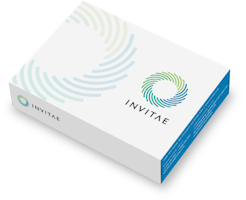
Invitae Primary Immunodeficiency Panel
Test code: 08100 •
Sponsored testing
In addition to insurance and patient-pay billing options, this test is also available through a sponsored, no-charge testing program.
Test description
The Invitae Primary Immunodeficiency Panel analyzes genes that are associated with inherited disorders of the immune system. These genes were selected based on the available evidence to date and comprise Invitae’s broadest test for primary immunodeficiencies (PIDs).
Ordering information
Turnaround time:
10–21 calendar days (14 days on average)New York approved:
YesPreferred specimen:
3mL whole blood in a purple-top EDTA tube (K2EDTA or K3EDTA)Alternate specimens:
Saliva, buccal swab, and gDNA are also accepted.Learn more about specimen requirementsRequest a specimen collection kitClinical description
To view the complete clinical description of this panel, click here.
Assay information
Invitae is a College of American Pathologists (CAP)-accredited and Clinical Laboratory Improvement Amendments (CLIA)-certified clinical diagnostic laboratory performing full-gene sequencing and deletion/duplication analysis using next-generation sequencing technology (NGS).
Our sequence analysis covers clinically important regions of each gene, including coding exons and 10 to 20 base pairs of adjacent intronic sequence on either side of the coding exons in the transcript listed below, depending on the specific gene or test. In addition, the analysis covers select non-coding variants. Any variants that fall outside these regions are not analyzed. Any limitations in the analysis of these genes will be listed on the report. Contact client services with any questions.
Based on validation study results, this assay achieves >99% analytical sensitivity and specificity for single nucleotide variants, insertions and deletions <15bp in length, and exon-level deletions and duplications. Invitae's methods also detect insertions and deletions larger than 15bp but smaller than a full exon but sensitivity for these may be marginally reduced. Invitae’s deletion/duplication analysis determines copy number at a single exon resolution at virtually all targeted exons. However, in rare situations, single-exon copy number events may not be analyzed due to inherent sequence properties or isolated reduction in data quality. Certain types of variants, such as structural rearrangements (e.g. inversions, gene conversion events, translocations, etc.) or variants embedded in sequence with complex architecture (e.g. short tandem repeats or segmental duplications), may not be detected. Additionally, it may not be possible to fully resolve certain details about variants, such as mosaicism, phasing, or mapping ambiguity. Unless explicitly guaranteed, sequence changes in the promoter, non-coding exons, and other non-coding regions are not covered by this assay. Please consult the test definition on our website for details regarding regions or types of variants that are covered or excluded for this test. This report reflects the analysis of an extracted genomic DNA sample. In very rare cases, (circulating hematolymphoid neoplasm, bone marrow transplant, recent blood transfusion) the analyzed DNA may not represent the patient's constitutional genome.
You can customize this test by clicking genes to remove them.
Primary panel
The Invitae Add-On Primary Ciliary Dyskinesia and Cystic Fibrosis Panel analyzes genes which are associated with primary ciliary dyskinesia and cystic fibrosis. These disorders result in respiratory disease, which can include respiratory tract infections, neonatal respiratory distress, and/or other lung-related complications. Severe or recurrent respiratory infections at an early age may mimic the symptoms of a primary immunodeficiency disorder. Additional manifestations of these disorders may include situs inversus or heterotaxy, abnormal sperm motility, or congenital absence of the vas deferens (resulting in male infertility).
This optional Add-On panel includes three genes associated with primary immunodeficiencies, which also cause adult-onset cancer predisposition syndromes. This panel may be appropriate to add to the Primary Immunodeficiency Panel for patients with a strong suspicion of constitutional mismatch repair deficiency syndrome or PTEN hamartoma tumor syndrome and who have been informed of the chance of identifying an adult-onset cancer predisposition syndrome by testing these genes.
Question about billing?
Find answers